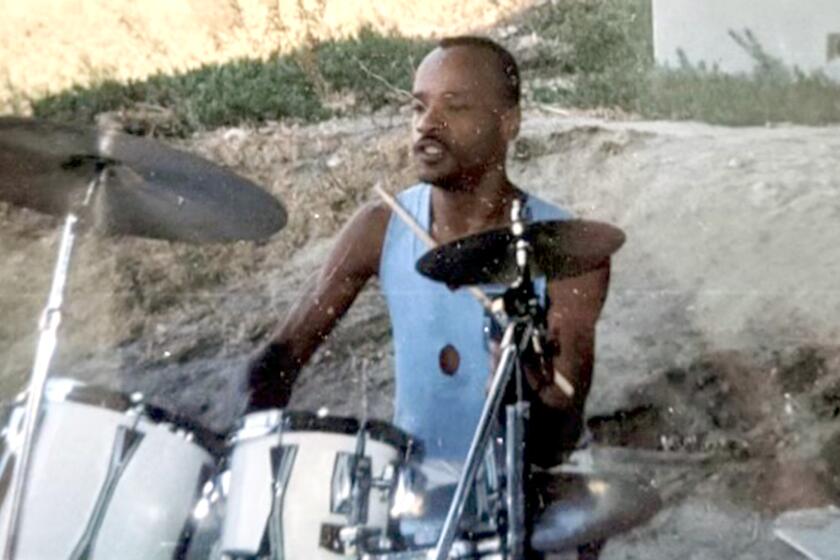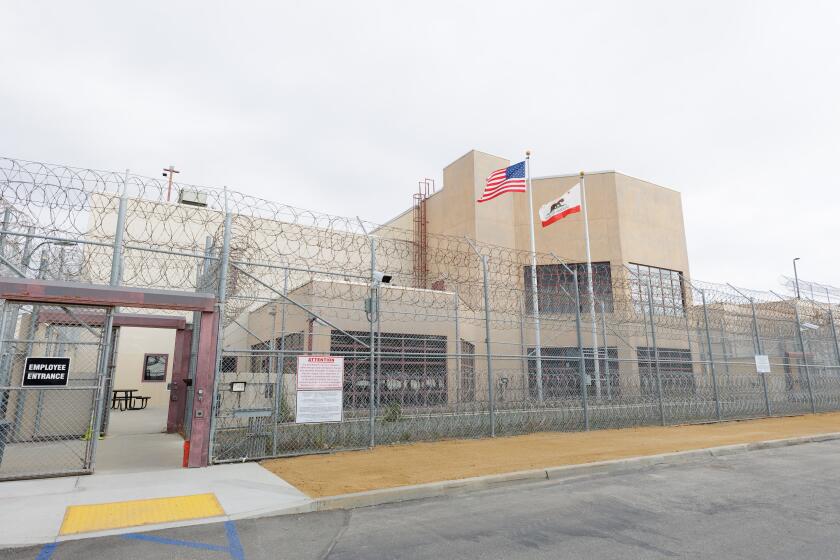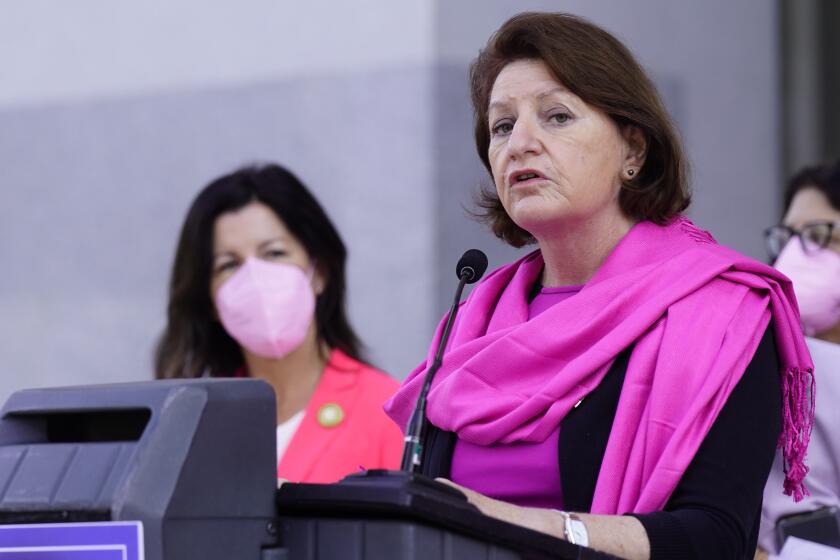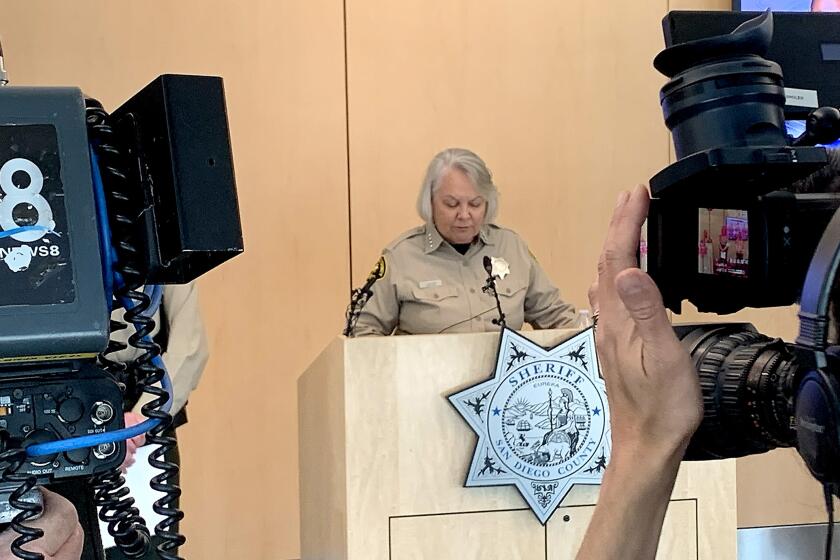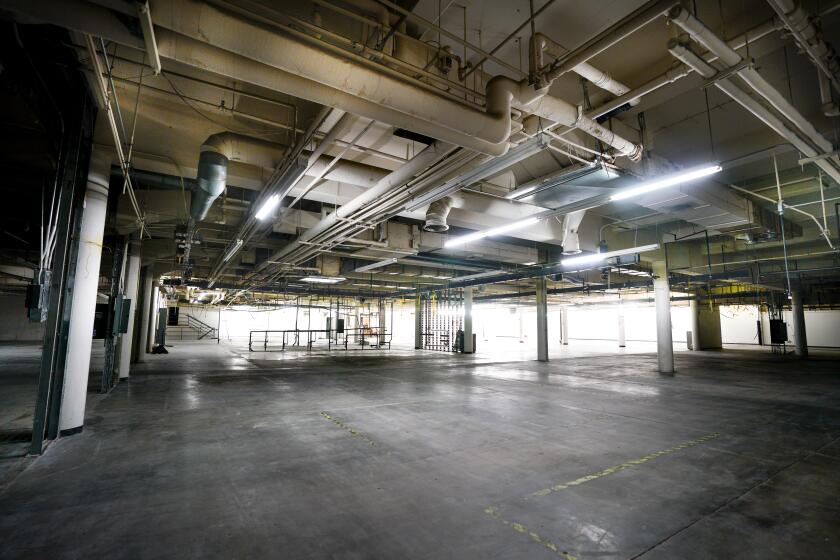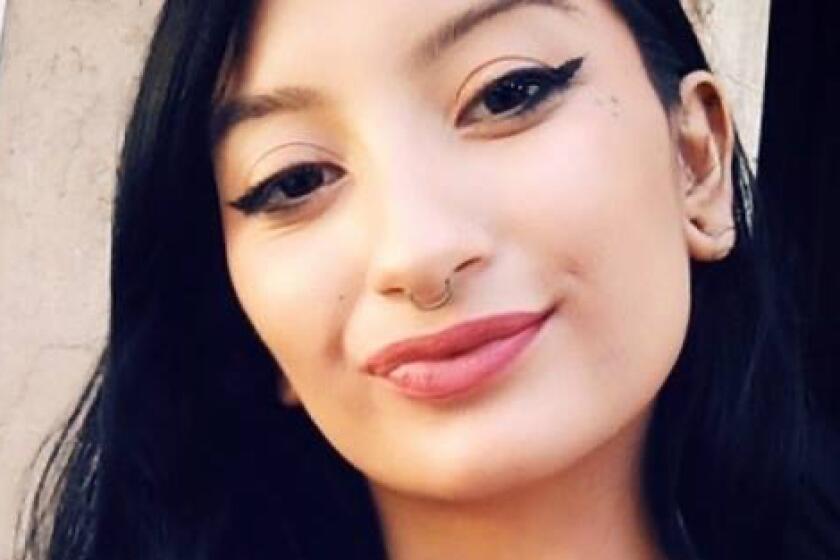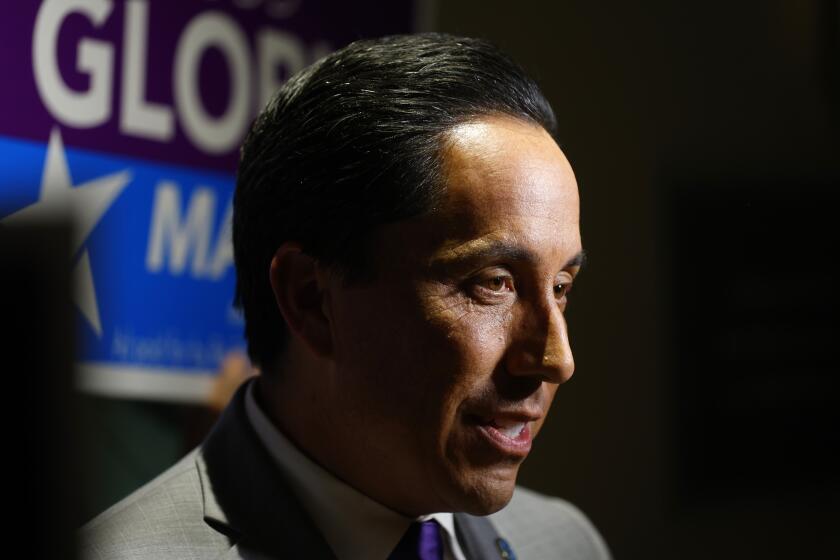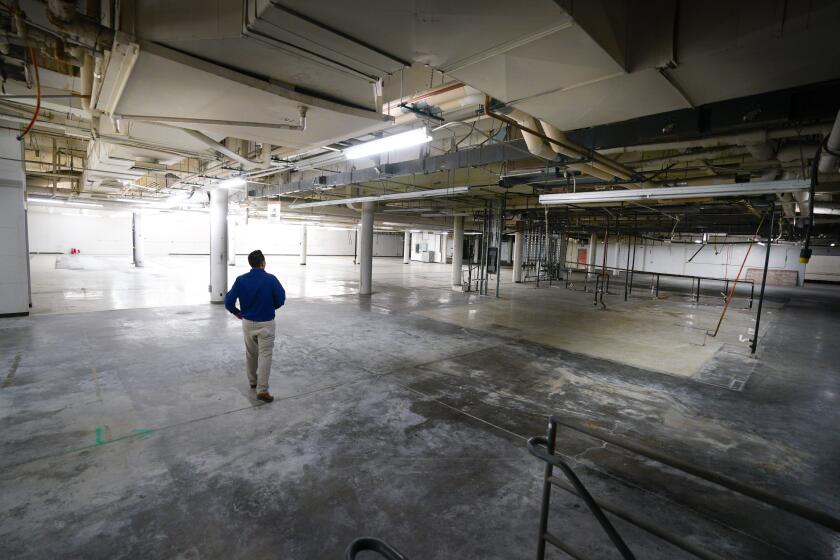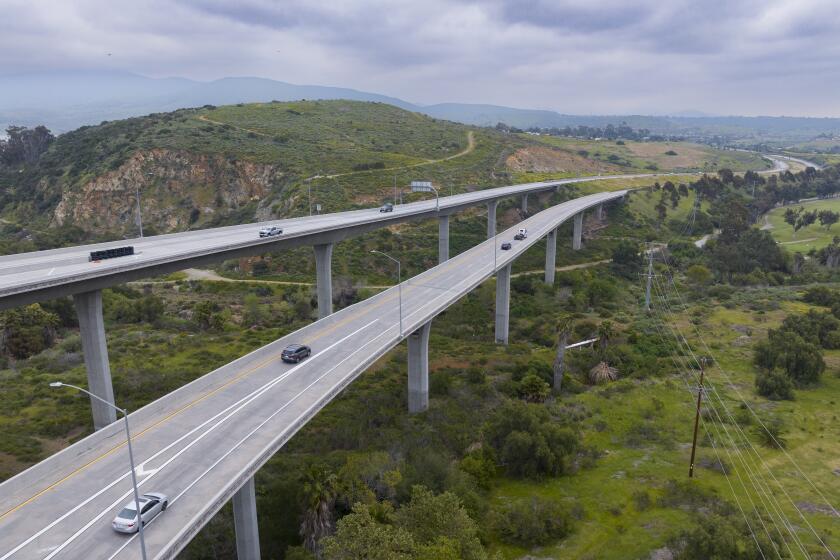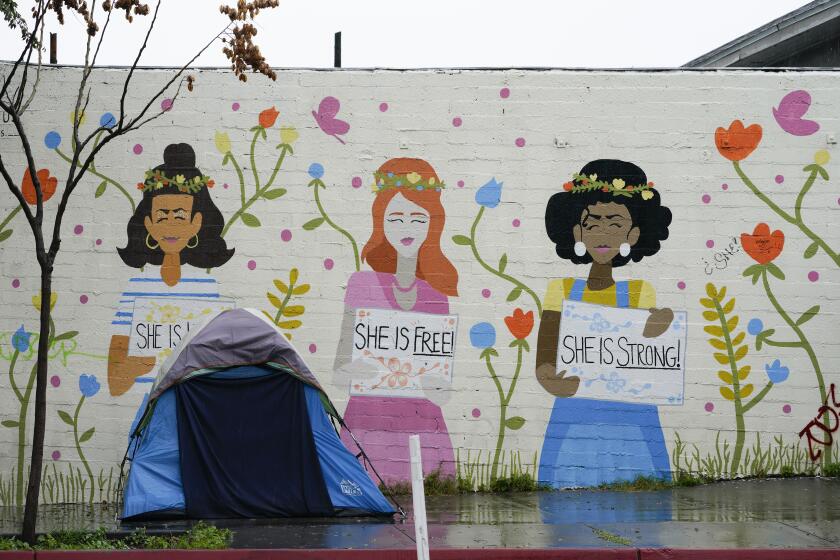Despite pandemic, sheriff continues booking suspects on minor, nonviolent offenses
Union-Tribune analysis shows 1 in 4 jail bookings follow arrests for public intoxication and other misdemeanors
In the weeks following March 12 — the day before San Diego County canceled large public gatherings and imposed a sweeping social-distancing order to combat COVID-19 — Angel Gutierrez was booked into county jail 13 times.
Gutierrez, 45, was arrested by San Diego police on 11 of those occasions, mostly on suspicion of being under the influence of drugs. Arrest reports show he told officers he was homeless.
During his arrests, sometimes on multiple occasions a week, Gutierrez was handcuffed, placed in the back of a police cruiser and transported to jail, where he was processed and booked into custody.
Each encounter potentially exposed Gutierrez, the officers who arrested him, jail staff and other inmates to the novel coronavirus, which has posed a significant public health risk to congregate living facilities like jails and prisons.
Sheriff’s Department data analyzed by The San Diego Union-Tribune show that in the early days of the lockdown, amid calls for the department to reduce its jail population, hundreds of people were booked into jail for nonviolent, low-level offenses, including crimes like disturbing the peace, petty theft, vandalism, evading trolley fare and illegal lodging.
Between March 12 and April 30, more than one in four bookings involved people who were arrested on suspicion of committing minor and nonviolent crimes. Most of those arrestees were released without charges hours or days later.
Advocacy groups say police and sheriff’s deputies should avoid taking suspects into custody whenever possible to reduce the public health threat posed by the virus.
“Law enforcement should be prioritizing prevention and avoiding unnecessary contact that could spread COVID-19,” said Elizabeth Swavola of the Vera Institute of Justice, a New York nonprofit that promotes equality and opposes mass incarceration.
“Booking people into jail during a pandemic risks the health and safety of the officer, the person being arrested, the staff at the jail and the communities and families that each of those parties returns to when they leave the jail,” she said.
Bookings for minor offenses in San Diego County dropped slightly in mid-April, after law enforcement enacted emergency rules issued by California’s judicial commission that put strict limits on who local law enforcement agencies could book into jail.

In the weeks prior to April 17, data show county jails averaged about 154 bookings each week. After that, the average drops to 148 bookings.
The sheriff reported 4,919 bookings into county jails between March 12 and April 30. About 1,240 of those, more than 25 percent, involved people who were jailed on charges the Union-Tribune defined as minor and nonviolent for purposes of the analysis. Nearly three in four people arrested were jailed on a single, minor offense.
The Sheriff’s Department said it modified its booking criteria last month to incorporate the state judicial ruling ordering zero bail for inmates held on dozens of felony and misdemeanor charges to help prevent the spread of coronavirus among inmates. The change helped reduce the jail population from 5,500 to less than 4,000, a 28 percent decrease.
Spokesman Lt. Ricardo Lopez said it is important to look at the “full picture” — not just individual charges when examining jail booking data. He said the jails are taking precautions.
“To slow the spread of the COVID-19, all arrestees are required to wear face coverings during the intake process,” Lopez said via email. “Face coverings are provided to each individual in our custody, at no charge to them, and they may keep them when they are released from the facility. Wash basins and soap/water are readily available for them to wash their hands regularly.”
Minor crimes
Besides disturbing the peace, petty theft or shoplifting, vandalism and illegal lodging, the Union-Tribune included public intoxication, being under the influence of drugs, possession of illegal drugs, possession of drug paraphernalia and resisting arrest in the analysis.
The analysis also identified a handful of cases of illegal possession of alcohol, eating in a public transit system and failing to appear in court.
All bookings that involved violent or dangerous offenses, in addition to any of these minor offenses, were excluded from the analysis.

Besides Gutierrez, 118 other people cycled through jail more than once on misdemeanor charges between mid-in March and the end of April. Thirty-seven of the multiple arrestees were booked, released and booked again within three days, the data show.
COVID-19, which has infected more than 5,500 people in San Diego County so far and claimed 208 lives, is putting law enforcement officials in a quandary.
“It’s not just a dangerous time, it’s a very difficult time as well,” said Tom Bussey, the spokesman for the Oceanside Police Department, which arrested 83 people on minor and nonviolent charges between March 12 and April 30. Seven of them were arrested twice.
“It’s putting us between a rock and a hard place,” Bussey said, referring to the serial inebriates and drug users his officers encounter. “You can’t just leave them out there, where they are a danger to themselves or others. What if they got into a car and killed somebody?”
Despite an economic shutdown in full swing and most residents working from home, police and sheriff’s deputies made 176 minor and nonviolent arrests in the week of March 29 to April 4, the second highest weekly total analyzed.
Nearly half the arrests for minor crimes involved drunk-in-public allegations — 580 of the 1,246 bookings. In nearly all those cases, the intoxication charge was the sole violation cited.
Pedro Partida, 25, was booked five times for being drunk in public, all in the month of April. Two of those bookings were one day apart. He was released within hours each time.
Roughly 30 percent of the arrests involved people between the age of 30 and 39. One in five bookings involved people over the age of 50.
Data show 21 people were 65 years or older, a population the Centers for Disease Control and Prevention considers especially vulnerable. Of this group, all but two were arrested on a single charge, mostly for public intoxication.
The oldest arrestee was 80-year-old Otis Dixon, who was arrested in Hillcrest by San Diego police April 13 on suspicion of public intoxication. He was booked into San Diego Central Jail and released less than a day later.
Arrest records show Dixon did not provide police with a home address, an indication he is homeless. Several other arrestees in their 60s and 70s reported no fixed address or told police they were homeless.
The second-highest total of minor and nonviolent arrests, some 360 bookings, involved being under the influence of drugs. Another 140 incidents involved drug-possession charges, the analysis showed.
Jails and prisons across the country, which detain more than 2 million people on any given day, have become focal points of the COVID-19 pandemic.
Public health officials have warned for weeks that congregate living — clustered housing situations like those inside detention centers and senior homes — promotes the spread of the virus and threatens residents and staff.
The California Department of Corrections and Rehabilitation, which releases daily updates on COVID-19 infections, reported more than 440 inmates and almost 200 employees have tested positive for the virus statewide.
The San Diego Sheriff’s Department sporadically releases test results. The latest disclosure, posted online May 13, said 10 employees acquired the virus and no inmates were infected.
But Sheriff Bill Gore has tested fewer than 150 inmates, and at least four detainees who tested positive were subsequently released. The department has isolated 29 inmates as a precaution, the disclosure states.
Zero bail order
On April 6, in an effort to quickly reduce jail populations across the state, the California Judicial Council issued an emergency order lowering bail to $0 for people arrested on misdemeanors and nonviolent felonies. The order also put restrictions on who could be jailed.
Arrest records reflect the change. Jail bookings after the state judicial order generally fall into two categories: serious felonies and people detained for being under the influence of drugs or alcohol in public.
Lopez said the department is booking intoxicated people for their own good.
“These arrests involve those who are likely unable to provide for their own safety and the safety of others,” he said. “We allow them to be brought into our custody and proceed as book-and-releases, meaning once they are able to care for themselves they are released.”
But Aaron Littman, a UCLA law professor who researches corrections policy, said taking intoxicated people into custody during a pandemic does not protect arrestees or the jail staff and inmates.
“Deputies are not ‘reasonably able’ to place someone in civil protective custody in a circumstance in which placement poses a serious risk of infection with COVID-19,” he said, citing the penal code section related to public intoxication.
San Diego County jail inmates awaiting trial or serving a sentence have told the Union-Tribune that conditions in jails are unsanitary. They also say deputies do not always follow rules about wearing protective gear and they worry about the constant churn of people through the jails.
“There are guys coming in and out all the time,” Central Jail inmate Scott Buckelew said in a phone call Wednesday.
COVID-19 has not only reduced the jail population, crime rates have declined sharply, the San Diego Association of Governments reported last week.
Simple assaults in April were 18 percent lower than April 2019; larceny dipped by 26 percent over the same period.
The Judicial Council order and reduced crime rates combined to lower total jail bookings.
For example, San Diego County booked 6,598 people into its jails in April 2019. Last month, the department reported a total of 2,656 bookings, including 697 for nonviolent and other minor offenses.
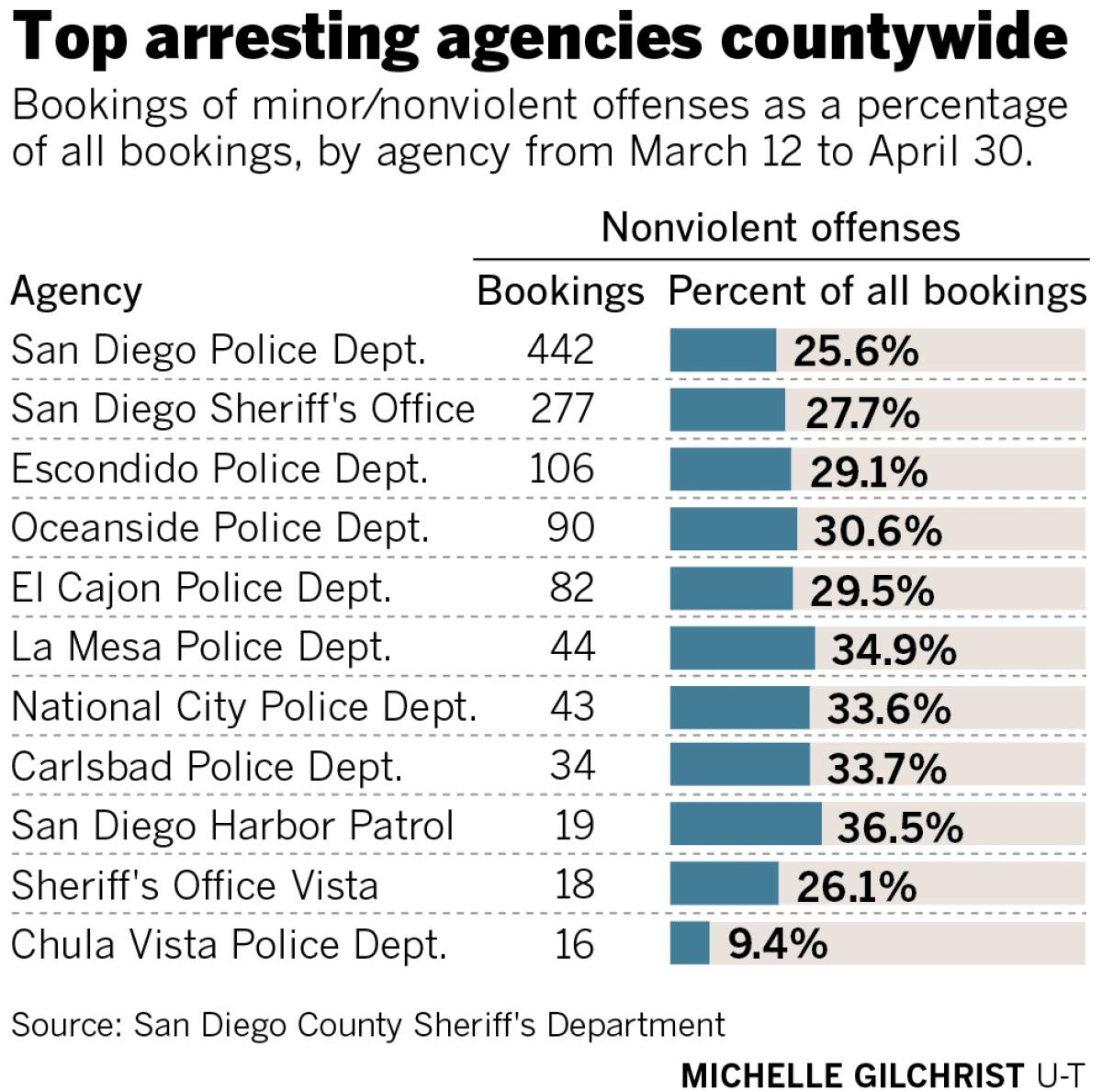
Steven Olson was one of the people booked on nonviolent charges last month.
Records show Escondido police arrested him April 4, just before 4 a.m., for public intoxication, resisting arrest and possession of a controlled substance. He was booked into Vista Detention Facility.
The release process started by 8:15 a.m. — less than five hours after he was taken into custody.
Olson has multiple aliases in his case files, including being known as “Red John.” He also has a lengthy San Diego Superior Court history, although the case files are not available for public inspection due to the pandemic.
Olson is also the subject of two mental health cases, one from November 2017 and a more recent case from March 2019.
Lt. Kevin Toth of the Escondido Police Department, said he could not speak specifically about the 106 under-the-influence and other minor violations his agency recorded between March 12 and the end of April.
But as a result of the pandemic, he said, Escondido patrol officers have been directed to issue citations and avoid arrests when possible.
“We always weigh the risk to public safety versus the need to reduce bookings to help slow the spread of COVID-19,” Toth said. “Although we’re doing our part in promoting public health, law and order will continue to remain an essential service.”
‘For no reason’
Criminal justice activists say law enforcement officials should be doing more — especially because so many of the suspects are released without charges.
“This is clearly contrary to what public health experts would recommend,” said Marc Schindler, executive director of the Justice Police Institute, a Washington D.C. nonprofit that works to reform the American criminal justice system.
“You’re basically placing people into an environment that would expose them to COVID-19 for no reason,” he said.
The standard for arresting nonviolent suspects should be much higher, Schindler said.
“At the end of the day, their job is to maintain public safety,” he said. “They should, and can be, operating differently.”
San Diego Police Department spokesman Lt. Shawn Takeuchi said all offenders arrested for being drunk in public are first taken to a detox center and only taken to jail if administrators reject the person for lack of space or for acting out.
“Our society does not have an answer for this particular population,” he said.
Labor union officials who represent thousands of police and sheriff’s deputies say they are generally pleased with county department responses to the virus, which run the gamut from regularly disinfecting cruisers and shared spaces to providing gloves, masks and other protective gear.
“We believe these changes ... , have contributed to the low number of our members who have contracted COVID-19,” said David Leonhardi, president of the 2,500-member Deputy Sheriffs’ Association of San Diego County.
He said he knows of eight deputies who have tested positive for COVID-19 in recent weeks.
The union boss also said two recent ballot measures — Propositions 47 and 57 — already reduced penalties for nonviolent offenders. And the 1,200 or so people booked for minor crimes is an indication that union members are not extremely concerned with potential exposure, he added.
“In most instances, deputies use their discretion to find the most appropriate resolution to an incident,” Leonhardi said. “Sometimes that’s an arrest, and many times it is not.”
On Friday, the Sheriff’s Department website listed 23 inmates who were pending release; 20 of them had been booked within the last 24 hours.
Get Essential San Diego, weekday mornings
Get top headlines from the Union-Tribune in your inbox weekday mornings, including top news, local, sports, business, entertainment and opinion.
You may occasionally receive promotional content from the San Diego Union-Tribune.




